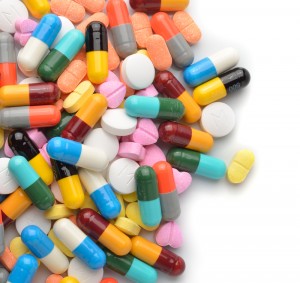Does MDMA Have Psychotherapeutic Potential?
 Methylenedioxymethamphetamine (MDMA) is also known as “ecstasy” because of the ecstatic feelings it produces in those who use it. While many dismiss the drug as a dangerous substance, some scientists claim it may have positive therapeutic uses with little risk of harm when used under proper supervision.
Methylenedioxymethamphetamine (MDMA) is also known as “ecstasy” because of the ecstatic feelings it produces in those who use it. While many dismiss the drug as a dangerous substance, some scientists claim it may have positive therapeutic uses with little risk of harm when used under proper supervision.
According to researchers, in the early 1970s a small group of therapists and researchers began to explore the potential of MDMA and its therapeutic use. MDMA encouraged the experience of emotions by reducing the fear response to perceived emotional threats. When used under controlled, therapeutic conditions, there were no direct observable harmful physical effects. For example, MDMA-assisted therapy helped trauma survivors delve into the root of their problematic memories; they experienced a healing catharsis, and subsequently functioned more efficiently and happily.
Then the 1980s saw a change from the therapeutic use of the drug to recreational use. In May 1986, after almost two years of hearings, a judge recommended that MDMA be placed in Schedule III. He made three basic findings: that MDMA had a low potential for abuse; that it had an accepted medical use; that there was an acceptable level of safety for use under medical supervision. Despite the ruling, the DEA administrator placed MDMA into Schedule I.
Formal therapeutic use and human research of MDMA has been deterred by its Schedule I status. Though the FDA claims that its refusal to permit experimentation is based on concern for the health of volunteers, this comes after millions of doses of MDMA were previously taken in the United States. Past literature does not contain one case of an individual suffering neurological symptoms linked to MDMA-related brain damage when the drug was administered in controlled, therapeutic settings.
In Switzerland, psychiatrists have used MDMA successfully in hundreds of cases in recent years. They have used it to help individuals uncover painful childhood memories and experiences that had been repressed; to decrease fear and defensiveness; to increase communication and empathy with one’s spouse; to get through traumatic experiences such as rape and incest; to live with the pain of cancer; and to resolve oneself to dying.
Dr. Michael Mithoefer, a Charleston, South Carolina, psychiatrist who works under the umbrella of the Multidisciplinary Association for Psychedelic Studies is conducting a new study on the effectiveness of using MDMA in combination with psychotherapy to treat PTSD, to allow patients to reflect on their trauma with emotional clarity.
He showed in a 2010 study that 83% of PTSD patients treated with MDMA-assisted psychotherapy showed marked improvement, compared to 25% of those treated with psychotherapy alone. A follow-up study found that the majority of those treated with the assistance of MDMA remained symptom-free two years later, demonstrating the treatment possibility of long-term efficacy.
Dr. Mithoefer said of the participants in the 2010 study,
“They were neither overwhelmed by emotion nor numbed from it. It is not just that people get blissed out. The psychotherapy is still difficult and can still be painful, but they have a sense that they can do it.”
While there are certainly promising indications of the medical possibilities of using MDMA, there remains difficulty in human testing of Schedule 1 drugs. Scientists are divided about MDMA’s safety. Until scientists can provide the FDA evidence to change the drug’s classification, future medical research will be slow in coming.
There are some serious health risks when taking any illicit drug for recreational use. The MDMA sold on the streets today is usually some mysterious chemical substance that often contains no MDMA at all. Confiscated drugs over a recent two-year period, showed only 13 % contained even a small amount of MDMA. Risk from unknown drug combinations is not worth the danger, nor is it wise to use any illegal drug.
That said, there is evidence once again that drugs like MDMA may have important psychotherapeutic uses when given in controlled medical settings. These drugs should be studied for their possible therapeutic effects.
The Best Call You Will Ever Make
Call Now to Speak Confidentially with an admission counselor.
https://www.maps.org/mdma/ptsdpaper.pdf
https://www.biologicalpsychiatryjournal.com/article/S0006-3223(10)00817-6/abstract
https://www.ncbi.nlm.nih.gov/pubmed/24590542
https://www.psychedelic-library.org/rosenbaum.htm
.